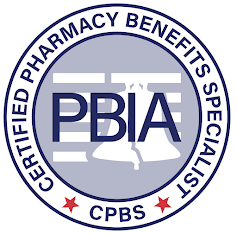Pharmaceutical Strategies Group Publishes 2024 Pharmacy Benefit Manager Customer Satisfaction Report and other notes from around the interweb:
- Pharmaceutical Strategies Group Publishes 2024 Pharmacy Benefit Manager Customer Satisfaction Report. The 2024 Pharmacy Benefit Manager Customer Satisfaction Report published by Pharmaceutical Strategies Group (“PSG”) disclosed low satisfaction and demand for change in the industry amongst healthcare payers. This report is the most comprehensive research on pharmaceutical benefit managers (PBMs), with a comprehensive look into the increasingly complex structures and functions of today’s marketplace. The report, published for more than two decades, offers decision makers powerful comparative intelligence to help in the selection and management of services provided by PBMs. PSG’s deep understanding of the marketplace enables a broader view of the arrangements PBMs use to meet the unique priorities of plan sponsors. “PBMs are experiencing increased pressure that is ultimately going to drive change in the coming years,” said Morgan Lee, PhD, MPH, CPH, Senior Director of Research & Strategy at PSG. “This year’s report pulls back the curtain on healthcare payers’ appetite for disruption and the barriers and hesitancy posing roadblocks. Overwhelmingly, there is dissatisfaction with the status quo, but what degree of transformation the industry will undergo in the coming years remains to be seen.”
- Express Scripts Sues FTC, Demands Withdrawal of PBM Report. In a lawsuit filed in federal court in Missouri, Express Scripts by Evernorth, a subsidiary of The Cigna Group (NYSE: CI), demanded that the Federal Trade Commission (“FTC” or the “Commission”) retract its July 2024 report, which is filled with false and misleading claims about the pharmacy benefit management (PBM) industry and fails to serve the interests of American consumers. Information about Express Scripts’ lawsuit to protect those it serves is available at https://www.evernorth.com/advocate. “The FTC has taken unconstitutional actions in publishing a report that ignores the evidence provided by our company and other PBMs, demonstrates clear ideological bias and advances a false and damaging narrative – a narrative that could harm the health care system by removing essential checks and balances which would result in higher drug prices for American consumers,” said Andrea Nelson, Chief Legal Officer for The Cigna Group. “We don’t take this step lightly, but as advocates working to lower drug prices for millions of Americans and the employers, labor unions, and government agencies that provide their prescription drug benefits, we cannot let the FTC’s unlawful actions and false information stand.”
- Walgreens paying $106.8 million to settle US prescription billing fraud charges. Walgreens Boots Alliance (WBA.O), agreed to pay $106.8 million to settle charges it fraudulently billed the U.S. government for prescriptions that were never dispensed, the Department of Justice said on Friday. The Justice Department said Walgreens violated the federal False Claims Act between 2009 and 2020 by submitting payment claims to Medicare, Medicaid, and other healthcare programs for prescriptions it processed but which were never picked up. This caused the pharmacy chain to receive tens of millions of dollars for prescriptions it never provided to patients, the department said. “Federal health care programs provide critical health care services to millions of Americans,” said Brian Boynton, head of the Justice Department’s civil division. “We will hold accountable those who abuse these programs by knowingly billing for goods or services they did not provide.
- Copay Adjustment Chess Match: What Will Payers Do Next?. The primary reason that payers created copay adjustment programs lies within the very nature of their business, namely that insuring patients means taking on the risk of patients’ lives for the pharmaceutical benefit. Additionally, the payers’ clients—employers—demand that payers and pharmacy benefit managers (PBMs) keep drug costs under control since the cost of providing healthcare to their employees remains high. Over the years, formularies, exclusions, and prior authorizations have been created to support this cost control, but using the accumulator technique, in which the patient’s annual out-of-pocket (OOP) maximum is affected by taking off the manufacturer’s contribution, is a newer approach. It all stems from the same reasoning—payers are seeking ways to control costs to benefit their bottom line, while employers are seeking ways to control the costs of providing healthcare to their employees.
